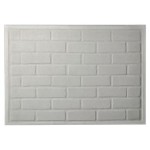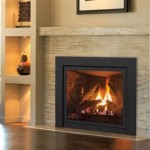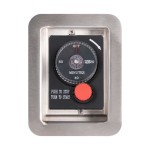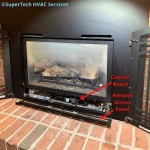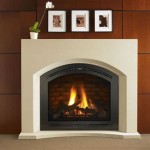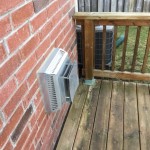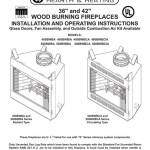Ethanol Fireplace Fuel Cost: A Comprehensive Guide
Ethanol fireplaces are gaining popularity as a modern and convenient alternative to traditional wood-burning fireplaces. They offer a clean-burning, ventless solution that can be installed in various locations, from homes and apartments to patios and balconies. However, a key consideration for prospective and current owners is the ongoing cost of fuel. This article provides a comprehensive overview of ethanol fireplace fuel costs, examining the factors that influence price, consumption rates, and strategies for managing expenses.
Ethanol fireplace fuel, also referred to as bioethanol fuel, is a denatured alcohol produced from the fermentation of plant-based materials such as corn, sugarcane, and grains. The denaturing process involves adding substances that make the alcohol unfit for human consumption, preventing it from being taxed as beverage alcohol. The resulting fuel burns cleanly, producing minimal smoke, soot, or ash. This eliminates the need for a chimney or venting system, making ethanol fireplaces a versatile option for many environments.
Understanding the costs associated with ethanol fireplace fuel is essential for budgeting and maximizing the enjoyment of this heating and ambiance-enhancing appliance. Factors such as fuel quality, purchase quantity, frequency of use, and the fireplace model itself all impact the overall expense. This article will explore these factors in detail, providing insights into managing and optimizing fuel consumption.
Factors Influencing Ethanol Fireplace Fuel Cost
Several factors contribute to the fluctuations in ethanol fireplace fuel costs. Recognizing these variables allows consumers to make informed purchasing decisions and potentially reduce their overall expenses.
Fuel Quality: The purity and quality of the ethanol fuel significantly influence its price. Higher-quality fuels, often labeled as premium or laboratory-grade, undergo more rigorous purification processes. This results in a cleaner burn with less odor and fewer byproducts. Lower-quality fuels may contain impurities that produce an unpleasant smell or leave residue in the fireplace. Consequently, premium-grade fuels tend to be more expensive than standard-grade options. However, the cleaner burn often justifies the higher price, as it can extend the lifespan of the fireplace components and reduce the need for frequent cleaning.
Purchase Quantity: As with many consumer goods, purchasing ethanol fuel in bulk often results in a lower per-unit cost. Manufacturers and retailers typically offer discounts for larger orders, such as multiple gallons or drums. Consumers who frequently use their ethanol fireplaces may find that buying fuel in bulk is a cost-effective strategy. Consider storage limitations and safety precautions when purchasing large quantities of fuel. Proper ventilation and secure containers are crucial for preventing spills and minimizing the risk of fire.
Brand and Retailer: The brand of ethanol fuel and the retailer from which it is purchased can also impact the price. Established brands with a reputation for quality and reliability may command a premium price. Online retailers often offer competitive pricing compared to brick-and-mortar stores, but shipping costs should be factored into the overall expense. Comparing prices from different retailers and considering customer reviews can help identify the best value for money.
Ethanol Production and Market Conditions: The price of ethanol is influenced by broader market conditions, including the cost of raw materials, production processes, and transportation. Fluctuations in the prices of corn, sugarcane, and other agricultural commodities can directly impact the cost of ethanol fuel. Changes in government regulations and environmental policies can also affect production costs and availability. Monitoring market trends can help predict potential price fluctuations and inform purchasing decisions.
Estimating Ethanol Fireplace Fuel Consumption
Accurately estimating fuel consumption is crucial for budgeting and planning. The amount of ethanol fuel an fireplace consumes depends on several variables, including the fireplace model, burner size, and the intensity of the flame.
Fireplace Model and Burner Size: Different ethanol fireplace models have varying fuel consumption rates. Larger fireplaces with larger burners typically consume more fuel than smaller, more compact models. The burner size, measured in terms of BTU (British Thermal Units) output, indicates the amount of heat produced per hour. A higher BTU rating generally corresponds to a higher fuel consumption rate. Consulting the manufacturer's specifications for the fireplace model is essential for obtaining accurate fuel consumption data.
Flame Intensity: The height and intensity of the flame directly correlate with the amount of fuel consumed. Higher flames require more fuel to maintain, while lower flames consume less. Many ethanol fireplaces feature adjustable flame settings, allowing users to control the intensity and, consequently, the fuel consumption rate. Experimenting with different flame settings can help find a balance between ambiance and fuel efficiency.
Usage Frequency and Duration: The frequency and duration of fireplace use significantly impact overall fuel consumption. Regularly using the fireplace for extended periods will naturally require more fuel than occasional use. Tracking usage patterns can provide valuable insights into actual fuel consumption and inform future purchasing decisions. Consider using a logbook or spreadsheet to record the dates, times, and durations of fireplace use, along with the amount of fuel consumed.
Average Consumption Rates: A typical ethanol fireplace burner might consume approximately 0.5 to 1 liter of fuel per hour, depending on the factors mentioned above. This is a general estimate, and actual consumption rates may vary. To obtain a more accurate estimate, it is recommended to conduct a simple test. Fill the burner with a known quantity of fuel, operate the fireplace for a specific duration, and then measure the amount of fuel remaining. This will provide a personalized consumption rate for a specific fireplace and usage pattern.
Strategies for Managing Ethanol Fireplace Fuel Costs
Several strategies can be implemented to manage and potentially reduce ethanol fireplace fuel costs without compromising the enjoyment and benefits of an ethanol fireplace.
Optimize Flame Settings: Taking advantage of adjustable flame settings is one of the easiest ways to control fuel consumption. Lowering the flame intensity reduces the amount of fuel burned per hour, extending the burn time of each fueling. Experimenting with different flame heights can help find a setting that provides the desired ambiance without excessive fuel consumption.
Purchase Fuel in Bulk: As previously mentioned, bulk purchasing can significantly reduce the per-unit cost of ethanol fuel. Consider purchasing larger quantities of fuel from reputable suppliers, taking into account storage limitations and safety precautions. Explore options for purchasing fuel in drums or multiple gallons to maximize cost savings.
Choose High-Quality Fuel: While high-quality fuel may have a higher upfront cost, it can offer long-term benefits. Cleaner-burning fuels reduce the need for frequent cleaning and maintenance, potentially extending the lifespan of the fireplace. The reduced odor and fewer byproducts also enhance the overall experience. Carefully weigh the costs and benefits of different fuel grades before making a purchase.
Consider Alternative Fuel Sources: While less common, some users explore alternative sources for procuring ethanol. However, it's vital that all fuels utilized are specifically denatured and rated for use in ethanol fireplaces. Using unapproved fuels can damage the fire place and be dangerous. Safety should always come first when choosing what to burn in an ethanol fireplace.
Maintain the Fireplace Regularly: Regular cleaning and maintenance ensure optimal performance and fuel efficiency. Remove any debris or residue from the burner and surrounding areas. Inspect the fuel reservoir for leaks or damage. Following the manufacturer's maintenance guidelines can help prolong the lifespan of the fireplace and prevent fuel wastage due to malfunctions.
Monitor Fuel Consumption: Tracking fuel consumption patterns provides valuable insights for budgeting and planning. Keep a record of the dates, times, and durations of fireplace use, along with the amount of fuel consumed. This data can help identify areas where fuel consumption can be reduced and inform future purchasing decisions. Using a simple spreadsheet or logbook can facilitate this process.
Shop Around for the Best Prices: Prices for ethanol fireplace fuel can vary significantly between retailers. Take the time to compare prices from different suppliers, both online and in brick-and-mortar stores. Factor in shipping costs and any applicable taxes when comparing prices. Reading customer reviews and checking for promotions or discounts can help identify the best value for money.
By understanding the factors that influence ethanol fireplace fuel costs, estimating consumption rates, and implementing effective management strategies, consumers can enjoy the ambiance and warmth of their ethanol fireplaces without excessive financial burden. A proactive approach to fuel management ensures a more sustainable and cost-effective experience.

How Much Does A Bioethanol Fireplace Cost 2024 Data Angi

Regal Flame 24qrt 1 Qt Bio Ethanol Fireplace Fuel 24 Bottles Food 4 Less

Understanding The Fluctuating S Of Bioethanol Fuel Insights And Advice

Is An Ethanol Fireplace Right For You Maine Homes By Down East

E Nrg Bioethanol The Best Fuel For Your Ethanol Fire

Regal Flame 6pkphc 1 Qt Bio Ethanol Fireplace Fuel 6 Bottles Pay Less Super Markets

How Much Does A Bioethanol Fireplace Cost 2024 Data Angi

Freestanding Bio Ethanol Fireplace Feel Stand For Indoor Use

Regal Flame Premium Ventless Bio Ethanol Fireplace Fuel 1 Qt La Paz County Sheriff S Office Dedicated To Service

Liquid Bio Ethanol Fireplace Fuel Ignis Clean Burning
Related Posts

